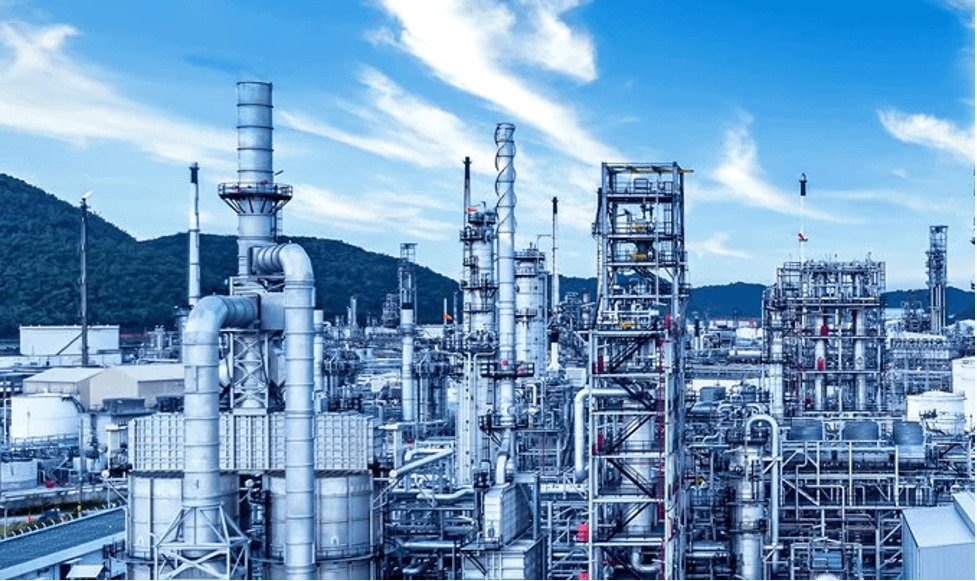Petrochemical technology is essential to produce our everyday goods. With new and advanced means of production, the use of petrochemicals can be questionable. In this article, we will be looking into petrochemical and petroleum technology and tackling the question of, in a technological world, what is the use of petrochemicals?
Petrochemical Technology Definition
Petrochemical technology is a specific branch of petrochemical engineering that relates to operating refining and petrochemical technology. Petrochemicals are chemical substances made from crude oil and natural gases. The outcome of manufacturing petrochemicals results in petrochemical derivatives such as ethylene, propylene, and benzene.
These derivatives in petrochemical technology are used as feedstock or raw materials to produce end-consumer goods such as packaging, cosmetics, detergents, and more. The process of petrochemical technology involves refining crude oil consequently creating various valuable petroleum products to be used as feedstock for petrochemicals and other fuels.
Petrochemical Products Used in Technological Fields
In petrochemical technology, some of the widely produced petrochemical products include plastics, rubbers, resins, synthetic fibers, adhesives, dyes, detergents, pesticides, and petroleum-derived paints and coatings, many of which are used in technological fields.
Some of these areas of technology include electronics, vehicles and machinery, appliances, industrial equipment, and building materials. Famously known materials produced by petrochemicals are used as components in technological fields, such as Plexiglas. Plexiglas is frequently used in cars, airplanes, aquariums, and household appliances as an alternative to glass.

What is the difference between petrochemical and petroleum technology?
Petrochemical and petroleum technology are strongly linked yet different in their production processes. Petroleum technology, also referred to as petroleum engineering, comprises exploration and production while petrochemical technology, or petrochemistry, refers to refining.
Both disciplines deal with different activities yet are linked as petroleum is required to produce petrochemicals. Petrochemicals are an outcome of converting petroleum or extracted crude oil into feedstock.
Petroleum Technology and Engineering
Petroleum technology is a field of engineering that involves developing and exploiting crude oil and natural gas fields, conducting technical analysis, and forecasting future production performance. It is closely related to geoscience. The extracted crude oil is later refined and transformed into high-value products used to manufacture petrochemical products and other sources of fuel.
How Technology Affects the Petrochemical Industry?
Looking at petrochemical technology, the new and modern advances in modes of production strongly affect the industry. State-of-the-art technology allowed advances in petrochemical production and petrochemical technology.
In fact, leading Egyptian petrochemical company, Anchorage Investments benefits from modern technologies to conduct its industrial activities domestically and regionally. Their most recently announced project, Anchor Benitoite, benefits from innovative petrochemical technology and rich resources as it will be in Suez Canal, Egypt. The project is predicted to be a game-changer in the region noting its large production capacity.
The Benefits of Combining Refining & Petrochemicals
In petrochemical technology, a well-planned integration of refining and petrochemicals results in positive substantial amounts of petrochemicals produced for every barrel of crude oil in the refinery. Even though the integration process presents a number of capital, technological, and planning difficulties, combining refining and petrochemicals offers many benefits including:
- An upgraded refinery stream to marketable products,
- Minimized waste,
- Increased savings of working capital,
- Growth in monetary benefits.
By observing the petrochemical technology industry, refineries globally reported that only 5% to 20% of oil feedstock is used to produce petrochemicals even though these numbers are expected to increase, which makes combining refining and petrochemicals highly encouraged.
To conclude, in a world full of modern technology, petrochemical technology remains useful as it produces components and materials of many technological products including vehicles, house supplies, and building materials. Although modern technologies play a part in making petrochemical production more efficient which can be seen through Egyptian petrochemical company, Anchorage Investments’ projects.
